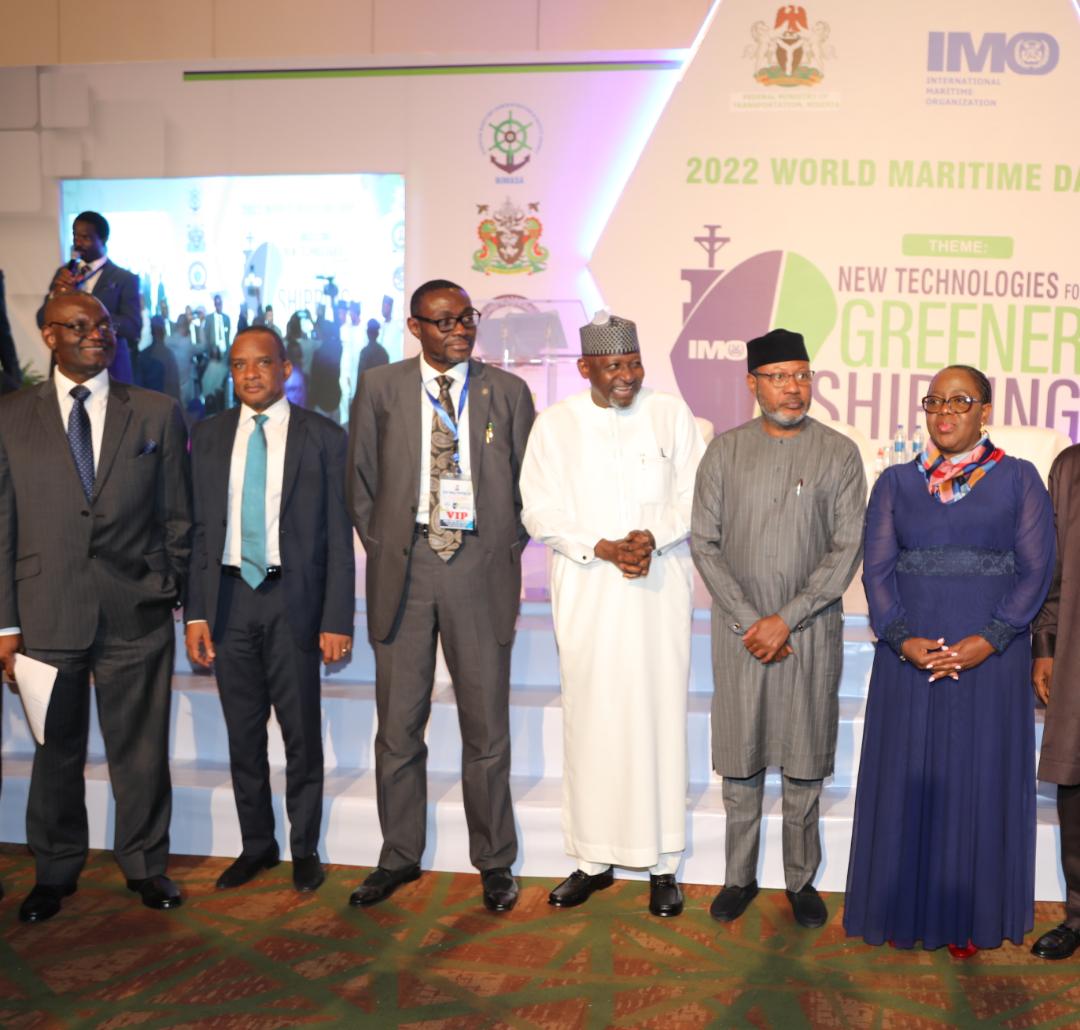
Minister of Transportation, Mu’azu Jaji Sambo, said he is an advocate of port concession considering its positive impact on the nation’s economy.
The Minister said this on Thursday while speaking with journalists at the 2022 World Maritime Day, which has the theme ‘New Technologies for Greener Shipping’.
He said the seaports have witnessed “a quantum leap” since 2006 when terminal operations were concessioned to private operators.
“So, I am a full advocate of port concession. This is because the government should provide a conducive environment for private sector capital and resources,” Sambo said.
In his keynote address at the event, the Minister expressed the commitment of the Federal Government to promoting greener shipping in line with the theme of the 2022 World Maritime Day.
He charged maritime training institutions including the Maritime Academy of Nigeria, (MAN) Oron and the Nigerian Institute of Transport Technology (NITT) to integrate courses that will address the requirements of greener shipping into their curricula.
He said, “Let me also reiterate that we all need to recognise that our commitment to a greener future in the maritime industry comes with certain responsibilities on the part of government and private sector stakeholders. It comes with the responsibility to train and retrain our workforce in order to prepare them for the inevitable innovation and transformations of the future that will certainly impact jobs and skills.
“As a country, we must not lose out in the future race which will require a workforce of new skills and competencies. Our maritime institutions, particularly the Maritime Academy of Nigeria, Oron, and the Nigerian Institute of Transport Technology (NITT) must therefore begin to re-calibrate their curricula to begin to address these requirements of the future. Furthermore, a green future equally implies the commitment by the private sector to invest in more modern platforms and assets which will meet the emission levels of the future.
“It is against this backdrop that I had earlier stated my commitment to the actualisation of the Cabotage Vessel Financing Fund (CVFF) which I am convinced will offer a veritable platform for the acquisition of newer vessels by our indigenous operators.”
In his goodwill address, the Director-General, Nigerian Maritime Administration and Safety Agency (NIMASA), Dr. Bashir Jamoh said all stakeholders have the responsibility of joining hands with government to attain greener shipping.
“On our own, as maritime regulator, we will do our best. We align with government’s thinking and policies in terms of facilitating zero gas emission by 2060,” he said.
Also speaking, the Managing Director of Nigerian Ports Authority (NPA), Mohammed Bello-Koko, said, “To further demonstrate our commitment to matters of healthy environment, NPA towards the end of 2020 signed the IMO Sulphur Regulations 2020 which mandates a maximum Sulphur content of 0.5% in marine fuels globally.
“The driver of this change is the need to reduce the air pollution created in the shipping industry by reducing the Sulphur content of the fuels that ships use. Transition to the use of natural gas which is more environmental friendly by vessels plying our waterways is on our agenda as an organisation that believes in the catalytic role that natural gas can play in the attainment of the Sustainable Development Goals of the United Nations, in particular Goal 7 to ensure access to affordable, reliable, sustainable and modern energy for all.
“Let me seize this opportunity to reiterate that the NPA is poised to embrace partnerships and support policies and actions steps aimed at optimising the advantages that the endowment of over a hundred trillion cubic feet of natural gas can bring to bear on Nigeria’s economy.
“As some of us are aware, the Lekki Deep Seaport, which is set to become operational before the end of this year 2022 is built to attract bigger volumes of cargo by leveraging on its capacity to berth large super post-panamax vessels.
“And the fact that the port is fully automated means that ships will spend lesser time in port, thus reducing fuel consumption and emissions during vessel operations. The Badagry Deep Seaport for which approval was recently gotten will also toe same path of full automation at take off.”